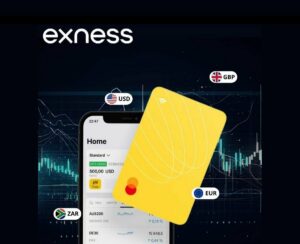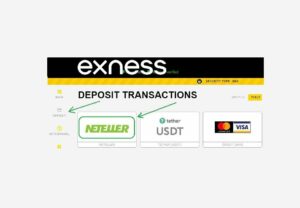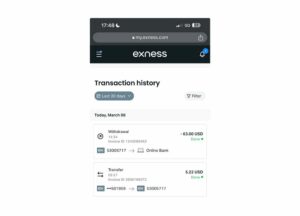The forex market is large and diverse, with brokers offering various methods for executing trades. The two main models are Dealing Desk (DD) and No Dealing Desk (NDD) brokers. Dealing Desk brokers, also known as market makers, handle trades internally and often act as the counterparty to their clients.
In contrast, No Dealing Desk brokers provide direct access to liquidity providers, ensuring that trades occur under real market conditions. This article investigates whether Exness operates as a Dealing Desk broker and highlights its trading infrastructure, execution speed, and transparency.
Is Exness a Dealing Desk Broker?
Exness broker operates primarily with the No Dealing Desk (NDD) model. This aligns with its focus on transparency, fast execution, and fair trading conditions. Exness employs Straight Through Processing (STP), ensuring that client trades are routed directly to liquidity providers without any interference.
Key Aspects of Exness’s Trading Model
No Market Maker Execution
Exness ensures a trading environment where orders are processed without internal interference. Rather than acting as the counterparty, the broker connects trades to a network of liquidity providers, offering a true reflection of market conditions.
Execution Speed and Technology
Exness uses advanced technology to ensure rapid execution, with average speeds of 0.1 seconds. This is crucial for traders who depend on fast processing to maintain profitability, such as scalpers and high-frequency traders.
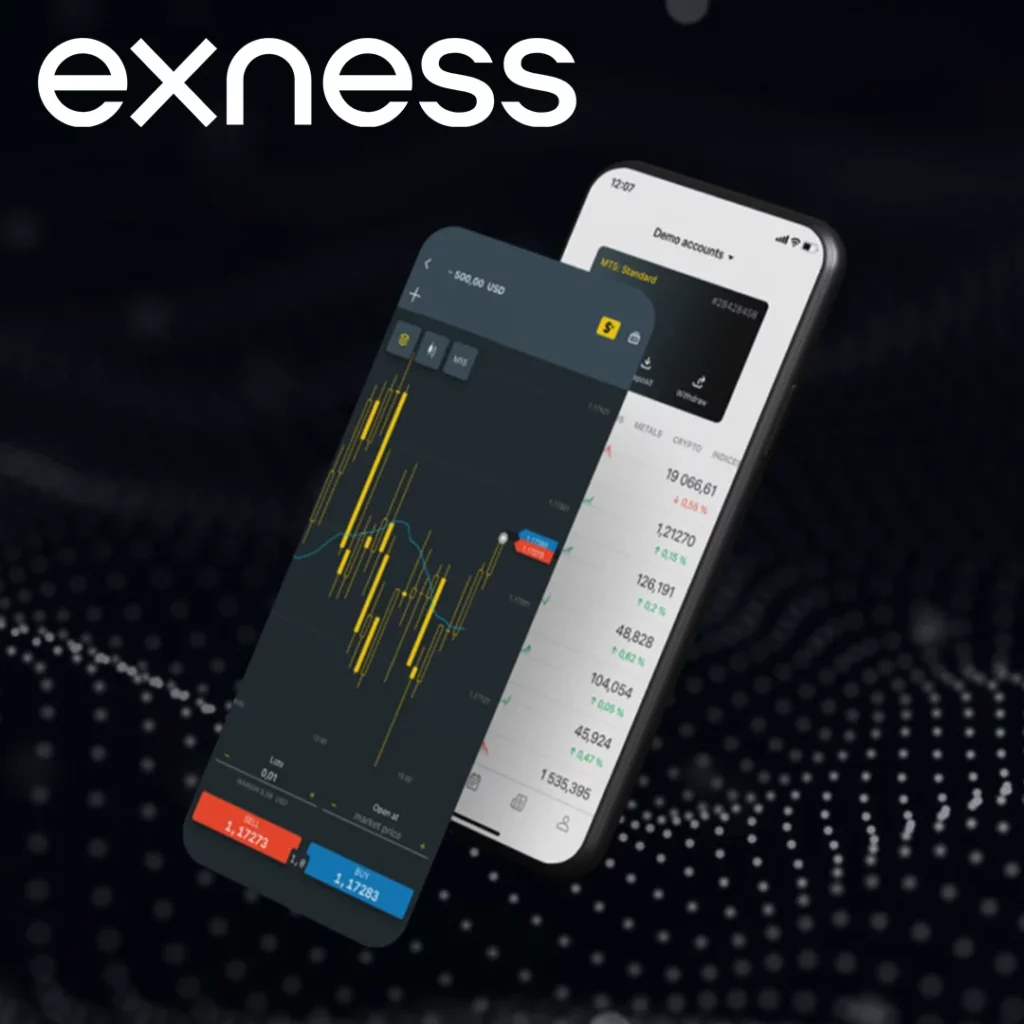
Transparent Pricing
Exness offers floating spreads for most account types, allowing traders to take advantage of pricing based on market conditions. For instance, the average spread for EUR/USD on the Standard account is 1.1 pips. On the Raw Spread account, traders can enjoy spreads as low as 0.0 pips, though this comes with a fixed commission.
| Account Type | Typical Spread (EUR/USD) | Commission | Execution Model |
|---|---|---|---|
| Pro | 0.6 pips | None | Instant Execution |
| Raw Spread | 0.0 pips | $3.50/lot | Market Execution |
| Standard | 1.1 pips | None | Market Execution |
| Zero | 0.0 pips (95% pairs) | $3.50/lot | Market Execution |
| Standard Cent | 1.1 pips | None | Market Execution |
Why Traders Prefer No Dealing Desk Brokers Like Exness
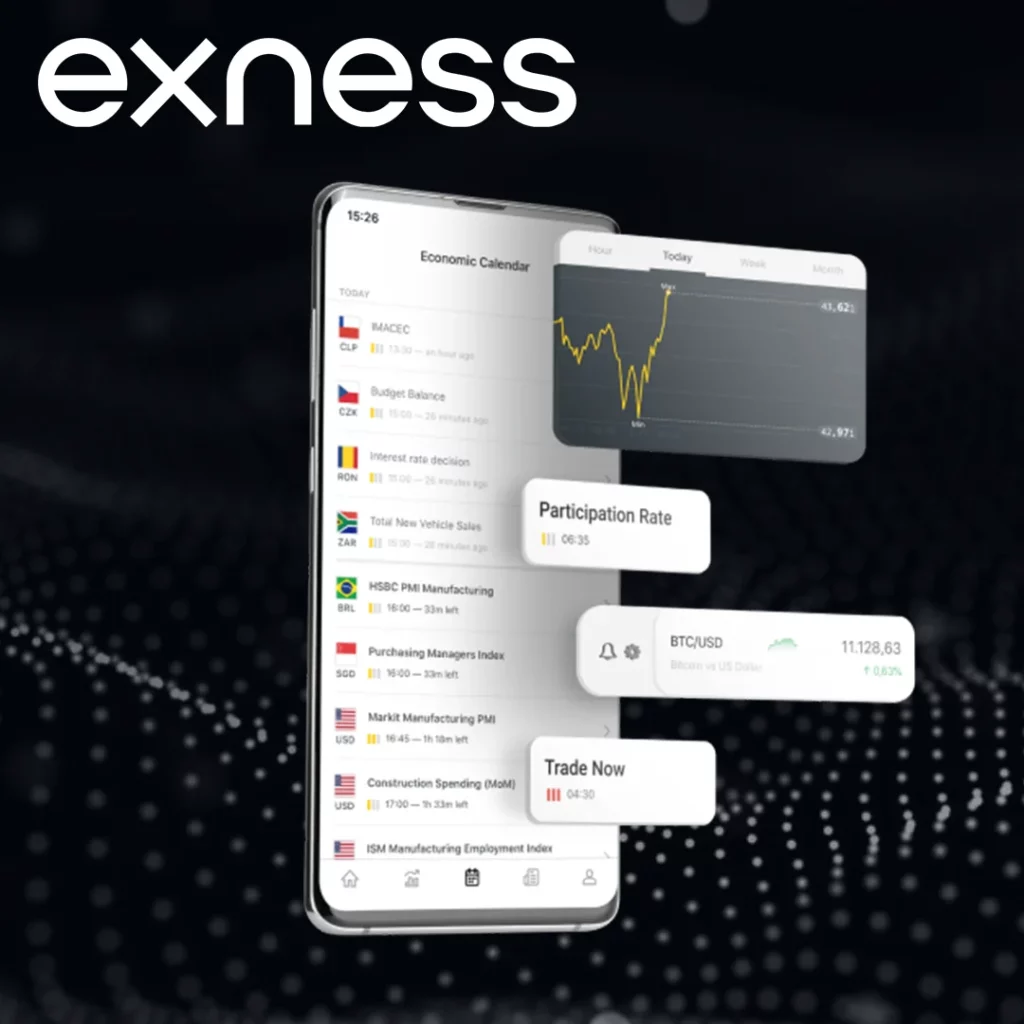
No Dealing Desk (NDD) brokers have become increasingly popular because they offer direct access to actual market conditions. Exness, as an NDD broker, offers a number of advantages that cater to the needs of today’s traders:
- Transparent Pricing. Exness routes trades directly to liquidity providers, ensuring traders receive fair and transparent pricing, with no hidden fees or manipulation.
- Cost-Effective Trading. Exness avoids internal trade handling, allowing it to offer competitive spreads and low commissions, making it an attractive option for cost-conscious traders.
- Cutting-Edge Technology. Exness’s advanced infrastructure supports rapid execution speeds, reducing slippage and ensuring reliable trade execution, even in volatile market conditions.
How Exness Maintains Transparency
Exness sets itself apart by focusing on practices that foster trust and fairness:
- Trade Execution Transparency. Exness regularly shares data on execution times and slippage, giving traders the ability to assess the quality of their trade executions.
- External Audits. To uphold its commitment to transparency, Exness conducts independent audits of trading volumes and financial operations.
- Negative Balance Protection. Exness provides negative balance protection, ensuring that traders cannot lose more than their deposited funds in their Exness account.
- Real-Time Market Depth. Exness offers real-time market depth, allowing traders to access liquidity at various price levels—an invaluable tool for professional and institutional traders.
Exness vs. Dealing Desk Brokers
| Feature | Exness (NDD) | Typical DD Broker |
|---|---|---|
| Trade Execution | Trades routed to liquidity providers, based on real market conditions. | Trades handled by the broker’s internal desk, possibly acting as the counterparty. |
| Conflict of Interest | No conflict, as trades are matched externally. | Possible conflict since the broker is the counterparty. |
| Spread Type | Floating, market-driven spreads. | Fixed or artificially widened spreads. |
| Execution Speed | ~0.1 seconds, fast and efficient. | Slower, typically between 0.3 and 1 second. |
| Transparency | High, with execution reporting and independent audits. | Low, with limited visibility into internal processes. |
| Market Conditions | Reflect real market prices. | Prices may be manipulated. |
Why No Dealing Desk (NDD) Models Are Essential for Traders
Lower Costs and Better Trading Conditions
The No Dealing Desk (NDD) model offers several advantages for traders, including tighter spreads and lower overall costs. By directly connecting to liquidity providers, Exness eliminates the extra markup typically added by Dealing Desk brokers. For example, on the Raw Spread account, major currency pairs Exness like EUR/USD and USD/JPY can have spreads as low as 0.0 pips, with a small commission charged.
Ideal for Scalping and High-Frequency Traders
Exness’s fast execution speeds and direct access to market liquidity make it an excellent choice for scalpers and high-frequency traders. Without the delays that can come from Dealing Desk intervention, traders can efficiently execute large volumes of trades, which is essential for those looking to take advantage of small price movements.
Trust and Transparency
Since the broker does not act as the counterparty to the trade, traders can have greater trust in the process. This means their success is not at odds with the broker’s financial interests, creating a more transparent and fair trading environment. Such alignment builds trust and encourages long-term trading relationships.
How Exness Handles Client Trades
Straight Through Processing (STP)
Exness uses Straight Through Processing (STP), which routes client orders directly to liquidity providers like banks and financial institutions. This method ensures traders have access to competitive pricing and deep liquidity, contributing to better trading opportunities.
Liquidity Providers
Exness collaborates with a range of liquidity providers to ensure the best pricing for its clients. By aggregating quotes from multiple sources, the broker helps to minimize spreads and optimize trading conditions.
| Liquidity Source | Role in Trade Execution | Benefit to Traders |
|---|---|---|
| Tier-1 Banks | Provide raw pricing | Offers the most competitive and accurate pricing |
| Financial Institutions | Ensure market depth | Enhances liquidity and reduces slippage |
| Non-Bank Providers | Increase access to liquidity | Broadens trading opportunities and lowers spreads |
The Role of Exness Liquidity Providers in Efficient Trade Execution
Liquidity providers play an essential role in ensuring seamless and efficient trade execution. Exness collaborates with top-tier banks, financial institutions, and non-bank liquidity providers to deliver deep market liquidity and competitive pricing.
Exness works with the following key liquidity partners:
- Tier-1 Banks that offer raw market pricing.
- Non-bank financial institutions that strengthen liquidity depth and improve order matching.
- Aggregated liquidity that ensures tighter spreads and better pricing.
This extensive network allows Exness to provide market-driven prices while reducing delays in executing trades.
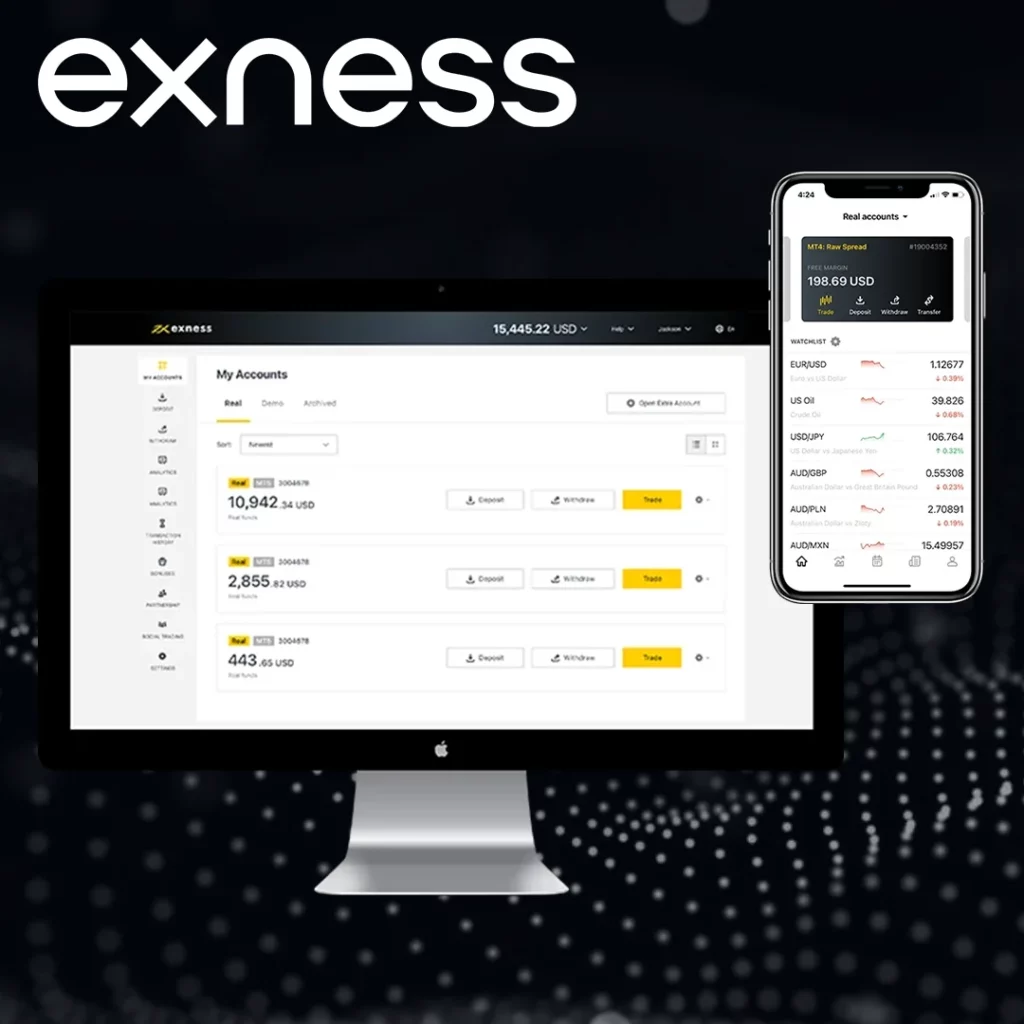
Exness and Its Regulatory Oversight
- Cyprus Securities and Exchange Commission (CySEC) – License Number: 178/12 – Region: European Union
- Financial Conduct Authority (FCA) – License Number: 730729 – Region: United Kingdom
- Financial Services Authority (FSA) – License Number: SD025 – Region: Seychelles
- South Africa FSCA – License Number: FSP 51024 – Region: South Africa
The Importance of Execution Speed in Trading Success
Execution speed is vital, especially in volatile market conditions. Exness delivers impressive order processing times, averaging just 0.1 seconds—one of the fastest in the industry. This is achieved through the use of advanced technology and a robust infrastructure, giving traders the advantage of quick execution.
How Exness Stacks Up Against Other Brokers
Execution Speed and Reliability
Execution speed is critical for traders who rely on fast order processing. Here’s how Exness compares to other brokers in terms of execution speed and order reliability:
| Broker | Execution Speed | Order Reliability | Additional Details |
|---|---|---|---|
| Exness | ~0.1 seconds | 99.9% orders executed | Offers the fastest execution and highest reliability. |
| IC Markets | ~0.2 seconds | 99.7% orders executed | Slightly slower, but still offers high reliability. |
| Pepperstone | ~0.3 seconds | 99.5% orders executed | Good execution speed, with reliable performance. |
| XM | ~0.5 seconds | 99.2% orders executed | Slower execution, but still dependable for most traders. |
Execution Models Compared
Different brokers use varying execution models, which can impact trading speed, pricing, and reliability. Here’s how Exness compares with other brokers:
| Feature | Exness (NDD) | IC Markets (NDD) | Pepperstone (NDD) | XM (DD) |
|---|---|---|---|---|
| Execution Type | No Dealing Desk (STP) | No Dealing Desk (ECN/STP) | No Dealing Desk (ECN) | Dealing Desk |
| Conflict of Interest | None | None | None | Possible |
| Spreads | Floating (0.0–1.1 pips) | Floating (0.0–0.6 pips) | Floating (0.0–1.0 pips) | Fixed or artificially widened |
| Execution Speed | ~0.1 seconds | ~0.2 seconds | ~0.3 seconds | ~0.5 seconds |
| Transparency | High | High | High | Moderate |
| Market Conditions | Market-driven, transparent | Market-driven, reliable | Market-driven, efficient | Prices may be manipulated |
Summary: Why Exness Is Not a Dealing Desk Broker
Exness operates under the No Dealing Desk (NDD) model, focusing on transparency, fairness, and fast execution. This model benefits traders by minimizing conflicts of interest, ensuring accurate market conditions, and offering competitive pricing. With a strong commitment to advanced technology and regulatory standards, Exness has established itself as a trusted choice for traders globally.

Trade with trusted broker Exness today
See for yourself why Exness is the preferred broker of over 800,000 traders and 64,000 partners.
Frequently Asked Questions
What is a Dealing Desk broker?
A Dealing Desk broker acts as the counterparty to a client’s trades, often processing orders internally and sometimes profiting from client losses.

